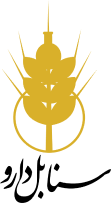اثرات بادرنجبویه (Melissa officinalis) بر اضطراب و کیفیت خواب در بیماران تحت عمل جراحی بای پاس شریان کرونر: یک کارآزمایی بالینی تصادفی دوسوکور کنترل شده با دارونما
Alireza Soltanpour, Fatemeh Alijaniha, Mohsen Naseri, Anoshirvan Kazemnejad, Mohammad Reza Heidari
چکیده:
مقدمه: بیماری شریان کرونر با عوارض بالایی شایع است و پیوند عروق کرونر یکی از مهمترین درمان های آن است. اضطراب و اختلالات خواب پس از جراحی بسیار شایع است و نیاز به کنترل مناسب دارد. مطالعه حاضر با هدف بررسی اثر بخشی بادرنجبویه در مدیریت این مشکل انجام شد.
روش کار: یک کارآزمایی بالینی تصادفی دوسوکور کنترل شده با دارونما با 80 بیمار بستری که تحت عمل جراحی بای پاس شریان کرونر قرار گرفتند انجام شد. بیماران به صورت تصادفی در دو گروه داروهای گیاهی یا دارونما قرار گرفتند. کپسول های حاوی 500 میلی گرم پودر برگ خشک بادرنجبویه به عنوان داروی گیاهی یا نشاسته گندم به عنوان دارونما 3 بار در روز تجویز شد. متغییرهای اصلی: کیفیت خواب و معیارهای اضطراب بود و از پرسشنامه کیفیت خواب بیمارستان سنت مری و مقیاس افسردگی و اضطراب بیمارستانی استفاده شد.
نتایج: در ابتدا تفاوت معناداری در نمرات اضطراب بین دو گروه وجود نداشت. پس از مداخله، نمرات اضطراب در گروه دارونما به ترتیب1/2 ± 7/15 و 3/1 ± 10/18 بود. همچنین میانگین تغییرات کیفیت خواب در گروه داروهای گیاهی به طور معنی داری بیشتر از گروه دارونما بود. 5/1 ± 14/40 در مقابل 4/4 ± 7/52 .
نتیجه گیری: نتایج مطالعه حاضر نشان داد که درمان 7 روزه با 1/5 گرم در روز پودر خشک بادرنجبویه، به نظر میرسد که به ترتیب 49% و 54% باعث کاهش سطح اضطراب و بهبود کیفیت خواب در بیماران پس از جراحی بای پاس شریان کرونر میشود.
Abstract:
Introduction: Coronary artery disease is prevalent with high morbidity and coronary artery bypass grafting is one of its most important treatments. Anxiety and sleep disorders after surgery are very common and need appropriate control. The current study aimed to evaluate the efficacy of Melissa officinalis L. (Lemon Balm) for managing this problem.
Methods: A double-blind randomized placebo controlled clinical trial was conducted with 80 in-patients who underwent coronary artery bypass surgery. The patients were randomized into either the herbal medicine or the placebo group. Capsules containing 500 mg of Melissa officinalis L. dried leaf powder as herbal medicine or wheat starch as placebo were administered three times a day. Sleep quality and anxiety measures were the main outcomes and St Mary’s Hospital Sleep Quality and Hospital Anxiety Depression Scale were used questionnaires respectively.
Results: At baseline there were no significant differences in the anxiety scores between the two groups. After the intervention, anxiety scores were 7.15 ± 1.2 and 10.18 ± 3.1 in the herbal medicine and placebo groups respectively (P=0.001). Moreover, the mean changes of sleep quality in the herbal medicine group was significantly higher than the placebo group; 14.40 ± 5.1 vs 7.52 ± 4.4 (P < 0.001).
Conclusion: The results of current study showed that seven-day treatment with 1.5 g/day dried leaf powder of Melissa officinalis appeared to reduce the levels of anxiety and improve the sleep quality in patients after coronary artery bypass surgery, by 49% and 54% respectively.


